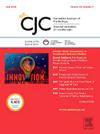从转化角度看高血压、炎症和认知障碍之间的相互作用。
IF 5.8
2区 医学
Q1 CARDIAC & CARDIOVASCULAR SYSTEMS
引用次数: 0
摘要
高血压是全球心血管疾病发病的主要风险因素。为了研究高血压与血管损伤之间的病理生理学联系,临床前已开发出多种高血压小鼠模型。具体来说,在临床前水平上,输注血管紧张素 II(Ang II)、横向主动脉收缩(TAC)、醋酸脱氧皮质酮(DOCA)盐和 L-NAME 作为高血压刺激,可揭示先天性和适应性免疫系统驱动的促炎症反应,以及导致血管损伤的结构和功能改变。血管损伤似乎在大脑层面尤为关键,因为大脑动脉、静脉和毛细血管对整个大脑的供血进行了微调,从而导致了一种众所周知的临床病症--脑小血管病(cSVD),其特点是大面积脑损伤,最终导致认知功能下降。磁共振成像(MRI)技术的进步允许识别和准确诊断特定的 cSVD 生物标志物,包括白质高密度(WMH)、腔隙性中风(LS)、脑微出血(CMB)和血管周围间隙增大(ePVS),其中每一种都被证明与特定的认知功能障碍相关。这种方法与针对降低血压和预防血管血栓形成的药物干预相结合,是预防和治疗 cSVD 认知功能衰退的可靠策略。本文章由计算机程序翻译,如有差异,请以英文原文为准。
A Translational Perspective on the Interplay Between Hypertension, Inflammation and Cognitive Impairment
Hypertension represents the major risk factor in the onset of cardiovascular disease worldwide. Preclinically, several mouse models of hypertension have been developed to investigate the pathophysiological link between hypertension and vascular impairment. Specifically, angiotensin-II infusion, transverse aortic constriction, deoxycorticosterone acetate salt, and N(ω)-nitro-L-arginine methyl ester (L-NAME) administration as hypertensive stimuli at the preclinical level permit the unveiling of a proinflammatory response driven by the innate and adaptive immune system and leads to vascular injury in terms of structural and functional alterations. Vascular impairment seems to be particularly critical at the cerebral level wherein arterioles, venules, and capillaries finely tune blood supply across the whole brain leading to the onset of a well known clinical condition named cerebral small vessel disease (cSVD) characterized by extensive brain injury, which culminates in the decline of cognitive functions. Advances in magnetic resonance imaging permit identification and accurate diagnosis of specific cSVD biomarkers including white matter hyperintensities, lacunar strokes, cerebral microbleeds, and enlarged perivascular spaces, each of which proved to be associated with a specific cognitive domain impairment. Such an approach in combination with pharmacological interventions targeted to the lowering of blood pressure and the prevention of vascular thrombosis formation represents a solid strategy in the prevention and the management of cSVD cognitive decay.
求助全文
通过发布文献求助,成功后即可免费获取论文全文。
去求助
来源期刊

Canadian Journal of Cardiology
医学-心血管系统
CiteScore
9.20
自引率
8.10%
发文量
546
审稿时长
32 days
期刊介绍:
The Canadian Journal of Cardiology (CJC) is the official journal of the Canadian Cardiovascular Society (CCS). The CJC is a vehicle for the international dissemination of new knowledge in cardiology and cardiovascular science, particularly serving as the major venue for Canadian cardiovascular medicine.
 求助内容:
求助内容: 应助结果提醒方式:
应助结果提醒方式:


